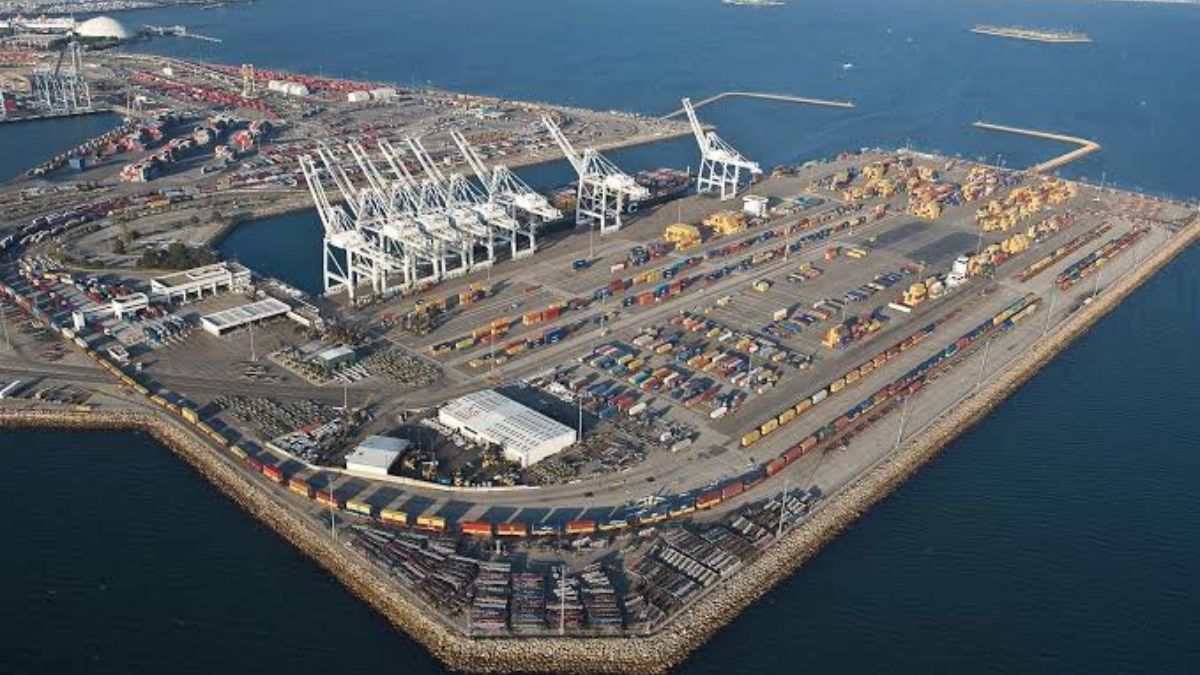Three reasons why the US waived Chabahar Port sanctions for India: ‘New Delhi made it clear to Washington...’
 The Chabahar port in Iran | X
The Chabahar port in Iran | X
The US decision to extend a sanction waiver for India against Iran’s Chabahar port for a period of six months is expected to bring in momentum to India’s ambition in the strategic region, considering that New Delhi hasn’t been able to achieve tangible development in the Chabahar port despite its two decades of presence there.
While the US decision was widely interpreted as a thaw in the India-US trade talks, an Iranian political analyst thinks Washington had three major reasons to bend to India’s will when it came to the Iranian port, and it has to do with China.
Chabahar, located in Iran’s Sistan and Baluchestan province, has long been known as India’s “golden gateway” to Central Asia because of its direct access to the Gulf of Oman, bypassing Pakistan. India signed long-term agreements with Iran in 2018 and again in May 2024 to operate and develop the port. For Iran, the development of the port meant creating jobs and opportunities for the local population and a source of income for the cash-strapped Iranian regime.
According to Alireza Rajaee, an expert on South Asian issues, Washington prefers India to maintain its control over Chabahar to prevent China's presence in the region. India's withdrawal from Chabahar effectively hands the region over to the Chinese. He told a local Persian news website that Chabahar Port is a focal point for the confrontation and cooperation of interests of regional and trans-regional powers. “The sanction waiver is not just an administrative decision of Washington, but also a surrender to the limitations of the maximum pressure policy and the victory of active Indian diplomacy. For India, Chabahar is a geopolitical necessity. The port provides New Delhi with direct and secure access to Afghanistan and beyond, to Central Asia, without dependence on the territory of its long-standing rival, Pakistan. By investing in and managing this port, India not only strengthens its role as a major player in the Indian Ocean region but also creates a balance in the strategic competition with China, which has invested heavily in Pakistan's Gwadar port,” Rajaee said.
With regard to Washington, it has been forced to extend the Chabahar exemption several times despite withdrawal from the JCPOA and the imposition of the most severe sanctions against Iran. “This is due to three major reasons, first being India's assertive diplomacy: New Delhi made it clear to Washington that its strategic interests in Chabahar were non-negotiable. India demonstrated with its strong arguments that abandoning the project would be very costly for the US, at the cost of losing a key strategic ally in the counter-China,” Rajaee said.
Reason two is counterbalancing China's influence. “For the US, Chabahar has become an indirect tool to contain China's growing influence in the region. Supporting India's presence in Chabahar is a strategy to create a rival trade hub to China's massive Belt and Road project, and especially Gwadar Port,” he said.
The third reason is the stability of Afghanistan. “Chabahar is the closest and safest route for landlocked Afghanistan to access the open seas. Washington realised that boycotting this port would not only further isolate Iran but also seriously jeopardize the stability and fragile economy of Afghanistan, in which it had invested for years,” the expert opined.
Middle East